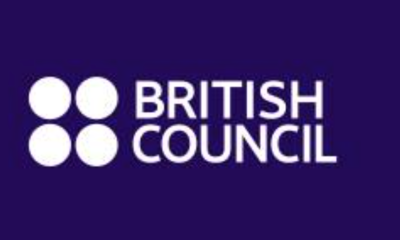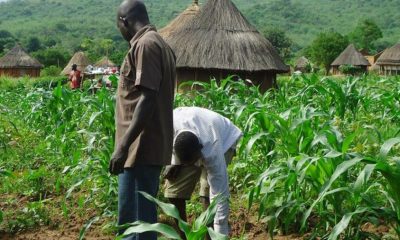Business
Inflation rate in Ghana slows to 25% in April

The Ghana Statistical Service (GSS) announced on Wednesday that the year-on-year inflation in the West African country has dropped to 25% in April, which is 0.8 percentage points lower than the 25.8% recorded in the previous month. This indicates that the rate of inflation for April in the country slowed by 0.8%.
According to Ghana News Agency, Professor Samuel Anim, the Government statistician at GSS explained the reason behind the numbers pinpointing sectors of the Ghanaian economy that contributed to the slower rate of inflation in the country.
According to Prof Anim, food inflation was responsible for the overall drop in the rate of inflation as it recorded a rate of 26.8% from 29.6% the lowest it has been in 13 months.
On the other hand, Non-Food inflation shot up to 23.5% in April 2024, from 22.6% in March 2024.
This inherently means that compared to March, food inflation declined by 2.8 percentage points to 26.8 percent in April, while non-food inflation increased by 0.9 percentage points to 23.5 percent in April according to data from the GSS.
Inflation for locally produced items in the country stood at 25.7% while that of imported items into the country stood at 23.5%
Furthermore, Seven Ghanian economic divisions recorded higher inflation rates than the national average. These divisions range from the food sector, Hospitability sector, Health sector, and other diverse sectors.
These sectors include Alcoholic Beverages, Tobacco, and Narcotics (39.3%); Restaurants and Accommodation Services (33.9%), Personal Care, Social Protection, and Miscellaneous Goods and Services (31.9%); Health (31.2%); Recreation, Sports and Culture (28.7%).
For Food inflation in the country, 10 out of the 15 sub-class registered inflation that exceeded the overall food inflation of 26.8%.
They included Cocoa Drinks (63.4%); Tea and Related Products (59.3%); Vegetables, Tubers, Plantain, Cooking, Banana, and Pulses (39.5%), and Coffee and Coffee Substitutes (35.5%).
In terms of regional inflation in the country, the Upper East region recorded the highest inflation rate of 42.5% while the Western North region and Oti region recorded the lowest at 16.8%


 News9 months ago
News9 months agoBritish Council Hikes IELTS Fees in Nigeria: Here’s Why

 Politics7 months ago
Politics7 months agoWhy I want to be the next governor of Kogi State – ADC’s Abejide

 Politics8 months ago
Politics8 months ago“Should Atiku Call Tinubu to Remove Wike as FCT Minister, He Will be Sacked” – Bwala Reveals

 News8 months ago
News8 months agoIt’ll take Nigeria 20 years to produce enough doctors, pharmacists, others – Stakeholders

 News9 months ago
News9 months agoDS Kalu – We Will provide legal framework to boost direct foreign investments

 Business9 months ago
Business9 months agoFG to Fast-Track AfDB’s SAPZ Project to Boost Agricultural Growth

 Investigation9 months ago
Investigation9 months agoNDLEA chiefs accused of N3.7m bribery

 News9 months ago
News9 months agoWoman killed in Benin after overhead water tank collapses






